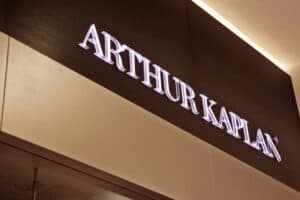Despite Tshwane Mayor Cilliers Brink's announcement last year, the companies of tenderpreneur Edwin Sodi are still 'blacklist-free'.

Seven months after the City of Tshwane announced its intention to blacklist controversial businessman Edwin Sodi’s companies – NJR Projects and Blackhead Consulting – they still do not appear on the National Treasury’s register of restricted suppliers.
Sodi’s companies, along with partner CMS, had secured a R290 million tender to upgrade the Rooiwal Wastewater Treatment Works plant. Sodi completed only 60% of the first phase despite being paid R291.4 million by the city.
ALSO READ: Hammanskraal cholera: Edwin Sodi’s R295m Rooiwal tender… where did the money go?
Edwin Sodi: Rooiwal wastewater plant tender contract
The project was discontinued due to the contractors’ poor performance and inability to effectively carry out the tasks, which led to the contract being terminated.
Last year, Tshwane Mayor Cilliers Brink announced that all the companies linked to the tender would be blacklisted.
“This will result in these individuals being restricted from doing or obtaining any business with the state for a period of five years.
“The Office of the City Manager has written to the affected parties and given them 14 days to respond to our intentions to blacklist them,” said Brink in a statement.
ALSO READ: R295m Rooiwal tender: Edwin Sodi and Tshwane metro to face SIU scrutiny
Corruption Watch seeks answers from Treasury about Sodi
Corruption Watch has written to National Treasury, seeking answers on the status of the water tragedy in Hammanskraal. It noted that Sodi’s company did not appear on the Treasury’s list of Restricted Supplier and Tender Defaulter Report.
Corruption Watch is an independent civil society organisation that works to advance principles of transparency, accountability, ethics, and integrity, to build a society that is just, fair, and free from corruption.
It asked Treasury whether a letter from the city requesting that the joint venture companies CMS, NJR, and Blackhead and their directors be added to the restricted suppliers register was received, and if so, the date of receipt.
Corruption Watch further requested clarity on practical repercussions for companies and directors who were added to the restricted suppliers register.
SAHRC report on sewage pollution
In 2021, the South African Human Rights Commission (SAHRC) released a report into the sewage pollution of the City of Tshwane’s rivers and the Roodeplaat Dam, stating that Tshwane’s freshwater sources were being polluted with untreated and partially treated sewage and sludge because the city had not maintained its wastewater treatment works.
A public protector investigation was conducted into the allegation that there was failure by Tshwane to supply residents of Hammanskraal with clean water that is suitable for human consumption.
The public protector released the investigation report on 31 October 2023 and found the allegation was substantiated.
NOW READ: Asbestos case: Attempt by Magashule and Sodi to quash prosecution dismissed
Support Local Journalism
Add The Citizen as a Preferred Source on Google and follow us on Google News to see more of our trusted reporting in Google News and Top Stories.








